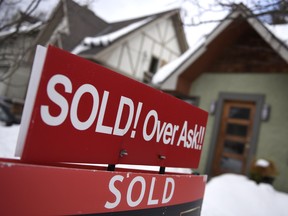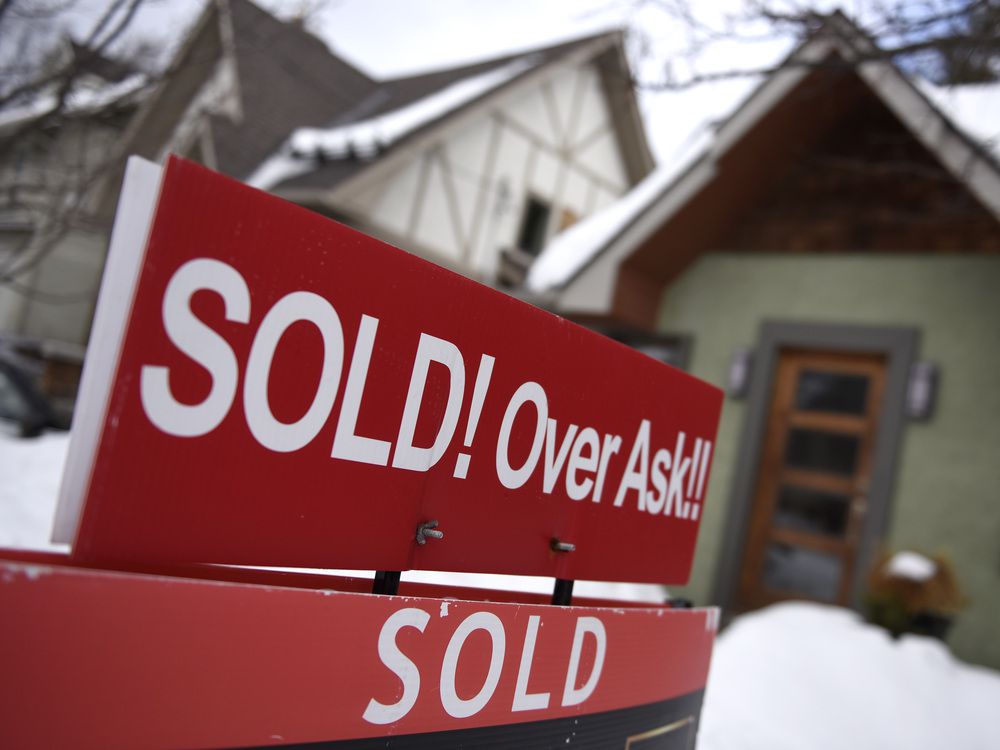Macklem pointed to a mismatch between the limited supply of homes and high demand as one of the main culprits driving affordability further out of reach

Article content
As the Bank of Canada is discussing the prospects of quantitative tightening this week, Members of Parliament were interested in the role quantitative easing played in the housing price run-up over the course of the pandemic during Thursday’s Standing Committee on Finance focusing on inflation.
Advertisement
This advertisement has not loaded yet, but your article continues below.
Article content
NDP MP Daniel Blaikie of the Elmwood-Transcona riding in Manitoba asked governor Tiff Macklem to clarify the impact that quantitative easing — the practice of taking more assets onto the bank’s balance sheet to lower interest rates — has had on the housing market over the past two years.
“There’s no direct link between quantitative easing and the number of mortgage loans,” Macklem told the committee. “What determines mortgage loans is how many houses people want to buy and what the cost of those houses are.”
The governor added that by lowering interest rates through quantitative easing, it had encouraged more Canadians to purchase homes, though emphasized that there was no direct connection between quantitative easing and mortgages. Macklem pointed to a mismatch between the limited supply of homes and high demand as one of the main culprits driving affordability further out of reach for many Canadians.
Advertisement
This advertisement has not loaded yet, but your article continues below.
Article content
Conservative MP Daniel Albas, representing Central Okanagan-Similkameen-Nicola in B.C., pressed Macklem further on the QE question, asking what specifically contributed to the sudden run-up in the price of an average home and if easing added “fuel to the fire” for housing costs.
“The housing market is very elevated, and we cannot continue to see the kind of increases in housing prices or the kind of growth rate we’ve seen in housing,” Macklem said, adding that many indebted households have stretched their budgets to get into the market even before the pandemic.
“Quantitative easing together with the other measures we took did lower mortgage rates and that contributed to the strength of the housing market,” he said.
Advertisement
This advertisement has not loaded yet, but your article continues below.
Article content
Macklem also offered a projection on housing prices after he was pre-empted by Conservative MP Adam Chambers, representing the Ontario riding of Simcoe North. Chambers asked Macklem if he shared the same opinion as Peter Routledge, head of the Office of the Superintendent of Financial Institutions, who warned that house prices could plunge as much as 20 per cent as interest rates rise during an interview with The Herle Burly podcast in February.
-

‘The economy can handle it’: More rate hikes in store, but Macklem pledges careful path forward
-

What rising rates mean for your mortgage
-

Buyer fatigue already cooling housing market
-

cCanadians deepening their faith in red-hot housing market even as rate hikes loom
“In our base-case projection, housing activity … is very elevated,” Macklem said. “In our projection, we expect that the growth and housing activity will moderate, but we do expect — it’s built into our projections — that housing activity is going to remain quite strong: people have jobs, wages are going up, incomes are healthy. All those things are going to support strength in housing.”
“We do expect that to moderate and raising interest rates will be a factor that will help moderate it,” he added.
On Thursday, the Toronto Regional Real Estate Board reported a nearly 28 per cent hike in the average home price in the Greater Toronto Area during the second-hottest February on record for home sales. Earlier in the week, the Calgary Real Estate Board said February had been a record month for the city as the number of home sales surged by 80 per cent year-over-year.
• Email: shughes@postmedia.com | Twitter: StephHughes95
Advertisement
This advertisement has not loaded yet, but your article continues below.


